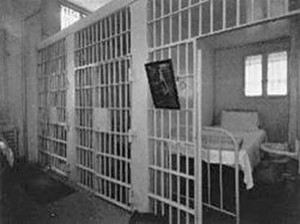 We all know jail house snitches are of a lowly character that can’t be trusted. When I was a NY federal prosecutor, I would never think of using one in the grand jury or on the witness stand in a criminal case.
We all know jail house snitches are of a lowly character that can’t be trusted. When I was a NY federal prosecutor, I would never think of using one in the grand jury or on the witness stand in a criminal case.
However convincing the rat, however seemingly useful the testimony to make your prosecution, you had to worry that you were being had – so that the snitch could get what he wanted, some consideration on his sentence, favors to ease his custody, or funds and rewards for his commissary or outside bank account for “cooperating.”
Often the jail house snitch seemingly offers “inside information” on what the target of your investigation said about an offense while the target was in jail, in the yard, at the sally port, by his cell, “admitting” to some aspect of the case you’re pursuing that helps you “make” your case.
These mimetic monsters absorb small and large details from an unwary or reckless prosecutor’s questions and weave a story that “fits,” that helps make a conviction possible in a difficult case where the prosecutor may feel he’s suffering an evidential shortfall.
Our criminal justice system is hardly perfect to begin with but taking one of these snitches and adding them to the mix of a jury trial is to infect an already challenged process with an ingredient you almost certainly know is flawed. Yet it happens all too often that prosecutors use these snitches at trial in capital or murder cases.
Another challenging aspect of any criminal prosecution is how you use accomplice testimony, meaning someone who was involved in the crime, who “flips,” and agrees to testify for the government in exchange for some consideration on the charges he’ll face or the time he’ll spend in custody, from probation to fewer years than if he took his chances at trial. You can appreciate how risky it is to shore up an accomplice’s testimony with a jail house snitch.
We will likely be having court arguments, even evidentiary hearings with prosecutors and investigators testifying, so that the court may decide whether a jail house snitch lied at a first degree murder trial in Loudoun County that resulted in a conviction on June 16, 2014, and a jury recommendation that the Accused be imprisoned for life.
It’s ironic that the “motive” at the Loudoun trial was that the Accused, Ryan Williams, 32, shot and killed Jovaugh Johnson, 30, for being a snitch. One district judge dismissed the charges against Mr. Williams because the judge didn’t find enough evidence that it was probable Williams did the dirty deed.
According to court papers, filed by Williams’ trial counsel, the snitch came forward after Williams’ conviction to say that the Commonwealth put the snitch in jail (Fairfax ADC) with Williams to mine information, even though Williams was represented by counsel, also that the Commonwealth fed the snitch information about the Williams case before trial, that the Commonwealth promised help to reduce the snitch’s sentence, and deposited funds to his commissary account.
At trial, the defense papers say, the snitch said he met the Accused over a chess board – as if it was a serendipitous meeting, said nothing about what information the prosecution fed him, nor anything about the consideration he was getting for testifying.
One thing is certain. This snitch has now been on every side of the facts in this case, proving once again, that snitches are not to be trusted to testify ever – and good sense suggests that we stop using snitches, and bar their trial testimony.
